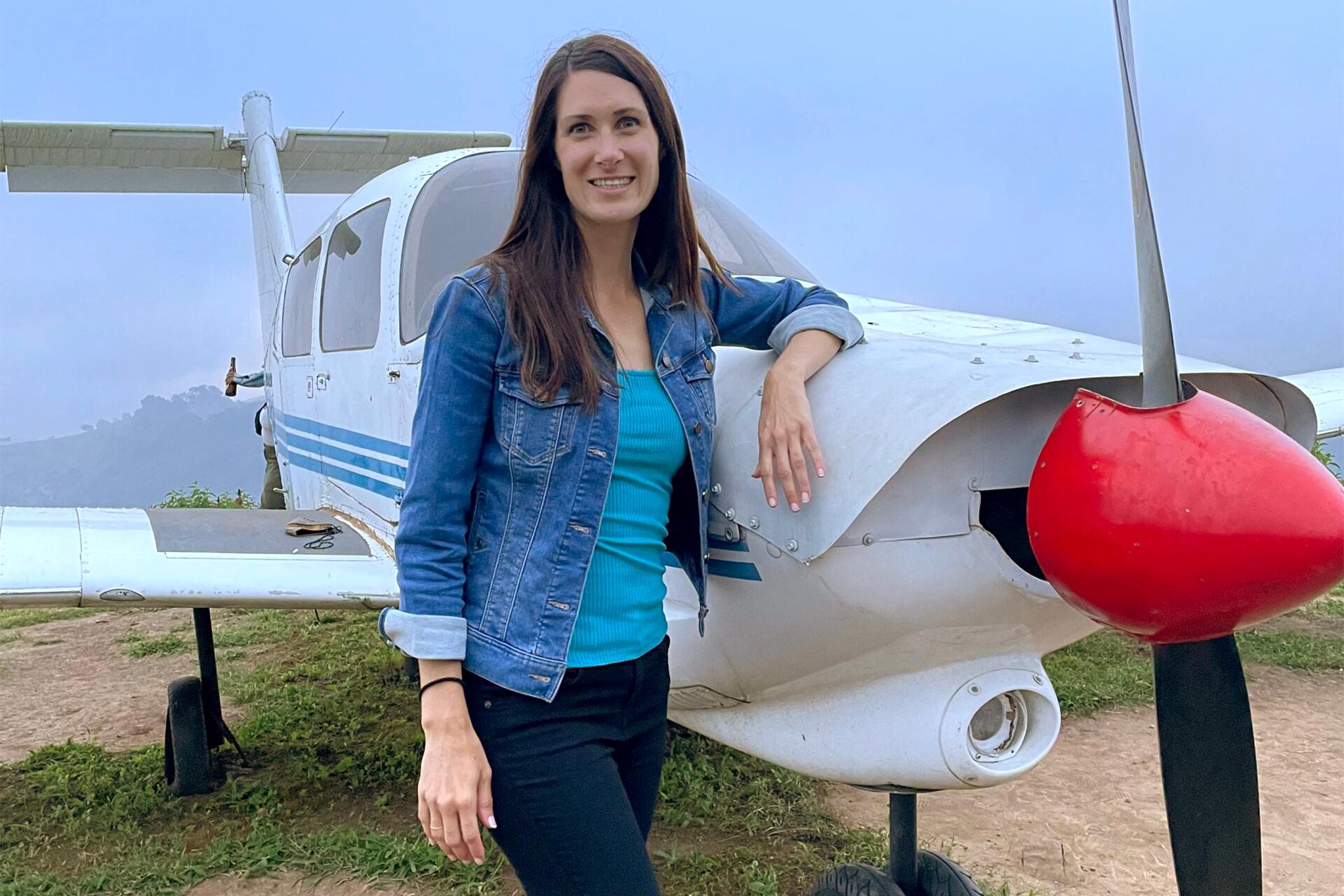This week, mortgage lender Danielle Anderson is answering calls from Lima, Peru. Back home, at her West Washington Park house, short-term renters on vacation have a place to stay at her Airbnb.
She's bringing in some extra income by renting both her basement, which she always keeps open for guests, and her personal living quarters upstairs. The company Effortless Rental Group is managing the rentals, cleaning the space between guests and handling any emergencies that might arise -- like when the oven went kerflooey just before Thanksgiving and a family renting her home almost missed out on its turkey.
Anderson is in the middle of a four-month journey around South America with Remote Year. The company books and arranges global travel for digital workers and sets up co-working spaces in other countries, so people can go on adventures around the world and still do their jobs.
Even though she's been out of the country through much of the year, her gig as a lender has been going well, she said. "I'm going to hit 30 million this year in production, and I'm doing it from a laptop."
Anderson has turned into an evangelist for her way of life: renting out her house and traveling the world.
"Everybody else should be doing what I'm doing," she said. Anderson's message for homebuyers: "They shouldn't pay for their mortgage. Someone else should pay for it."
Renting her home has helped her afford Denver's housing market.
Anderson, who grew up in Greeley, said she first saw the power of short-term rentals when her sister started renting out a loft in Durango. "She would sleep in the bedroom, and the upstairs loft she'd rent out for income." The arrangement proved profitable.
When Anderson was living in Houston, Texas, she began renting out rooms in her apartment -- both short- and long-term. In 2016, she moved to Denver and decided to buy a house.
"It helped me stretch my budget when I was purchasing a home," she said, "because I could rely on this extra rental income coming in."
Short-term rentals have caused many issues, and the city has been figuring out how to address them.
When the industry took off in Denver, investors began purchasing multiple properties and renting them out to tourists. Housing advocates argued too much stock was going to travelers and not enough to residents, inflating home prices for people trying to live in the city.
The industry has been heavily regulated in Denver, and now, you can't rent your home on places like Airbnb and VRBO unless it's your primary residence. Additional properties can only be rented long term. Since 2016, people running short-term rentals from their homes have been required to secure a license with the City of Denver.
Even after those rules went into effect, the short-term rental market has had issues. Some neighbors griped their communities were being overrun with vacationers and partiers. For years, the city's 311 line was plagued with complaints about loud guests. High profile shootings at Airbnb house parties didn't help the short-term rental market's reputation. And local government struggled to regulate companies that were not headquartered in Colorado.
Yet Excise and Licensing managed to enforce its permitting program, and the city has seen around 85% compliance from short-term-rental hosts.
Then came the pandemic.
"With necessary public health shutdowns of some businesses and travel restrictions ... there was no business for short term rental operators any more," said Eric Escudero, a spokesperson for Denver Excise and Licenses. "A lot converted to long-term rentals."
Applications for new licenses dropped as travel came to a temporary standstill.
While the market has not recovered from the peak of the pandemic, it did improve slightly from 2020 to 2021. In November, the Department of Excise and Licensing saw a 7% rise in applications from the previous number.
Once, individual rooms and shared apartments were in high demand. But as travel ramped back up and COVID lingered, the short-term rental of larger homes with amenities like exercise bikes, gyms and pools shot up, said Dana Lubner, who works for Effortless Rental Group and the advocacy group Rent Responsibly and sits on Denver's Short Term Rental Advisory Committee. According to data from AirDNA, which tracks secondary-home rentals, 81% of new rentals are full homes.
In recent months, the 311 line received fewer complaints about short-term rentals -- even as more people applied to run them.
"As we look to summertime, we anticipate, if we don't see another spike in cases, we'll see these applications continue to grow and anticipate seeing those licenses grow," Escudero said. "Hopefully we won't see the complaints get back to where they were. Now, we get hardly any complaints."
Anderson, who spent last weekend swimming with piranhas, is ready to head back to Denver.
City law requires her to live out of her primary residence for some portion of the year -- and she's ready to take a break from her travels.
When she gets back to Denver, she's looking forward to a home-cooked meal, something she's not had abroad.
She plans to stick around through at least March. After that, who knows? One thing is certain: She will continue offering short-term rentals and traveling for as long as she can.
"I don't think there's a way to go back to normal life after you do this," Anderson said.











